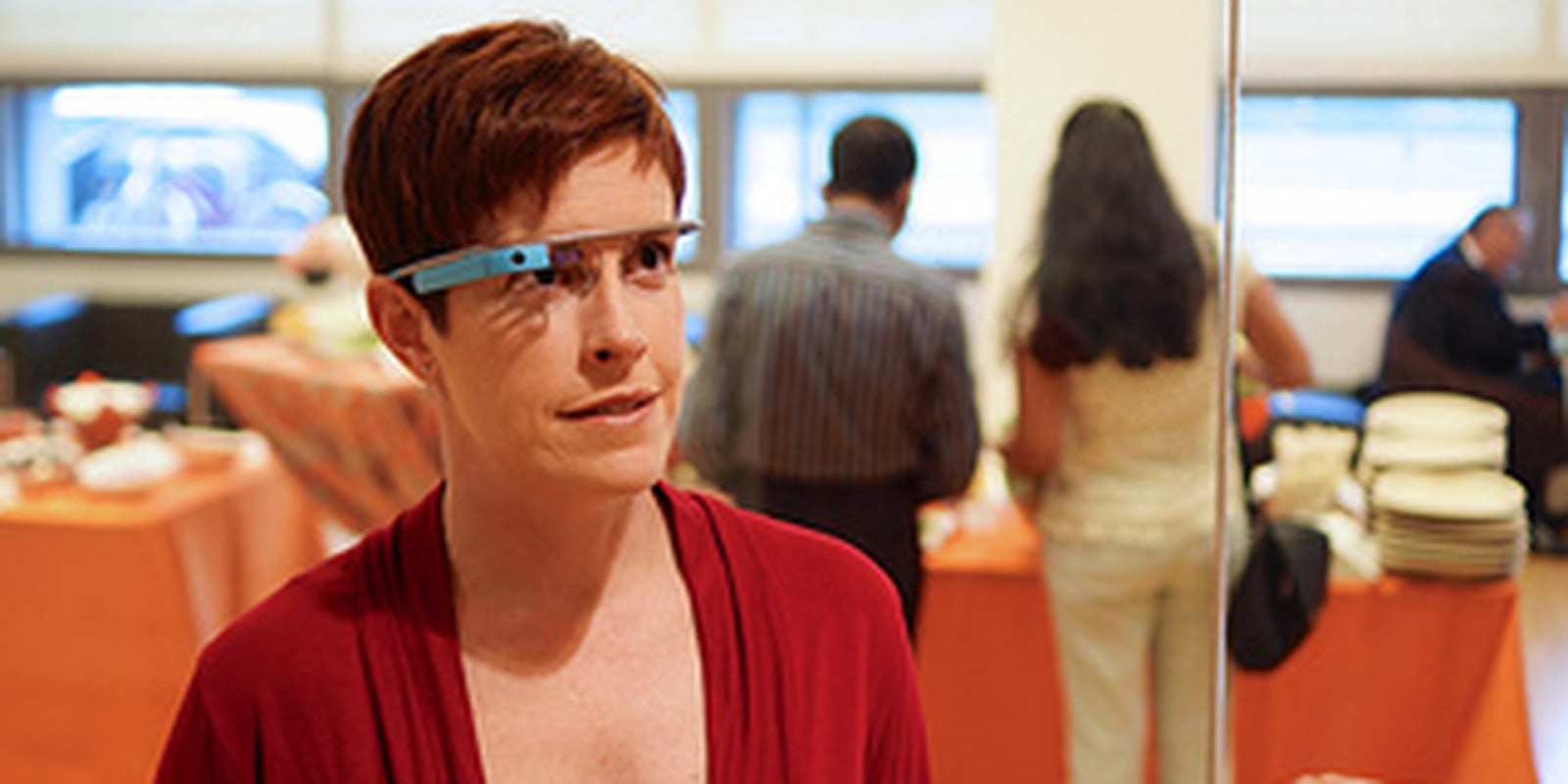In the book Super Sad True Love Story, Gary Shteyngart’s characters carry around devices called äppärät. These devices are disconcertingly similar to smartphones, only souped up to be beserk social barometers: Using their äppäräts, the characters pull up all sorts of information about each other, from credit score to “fuckability” rating. Their devices identify the richest, ugliest, smartest, and healthiest from a room full of strangers. There are no secrets, and first impressions are brutally objective algorithmic ranking of worth.
It’s supposed to be satire, but it sounds awfully similar to a new app’s pitch.
When Google Glass debuted, much appendage-wringing and knickers-twisting followed from people understandably concerned that the wearable device would tip our culture firmly into dystopian territory, if we weren’t there already: Would Glass conjure a culture where people willingly act as surveillers, where every wince and whisper gets tallied—the kind of world Shteyngart depicted in his novel?
So far Glass remains a toy for the affluent. Weary of the privacy implications, Google does not at the moment permit facial recognition software in the apps it allows in the young Glass ecosystem. So the idea of walking into a crowded bar full of strangers and immediately knowing who has the best and worst career prospects and a gene for receding hair remains a plotline in a book.
But Nametag, an app by a company called Facial Network, is cheerfully promoting its product that wants you to know personal information about the people around you. Nametag uses databases and facial recognition software to compile insta-profiles on strangers. Ideally, Nametag would like Glass users to walk into a room of people they don’t know, take a picture of the one they find most interesting, and find out their Facebook likes, their most recent tweets, whether they’re single—and whether they’re a criminal.
“Nametag links your face to a single, unified online presence that includes your contact information, social media profiles, interests, hobbies and passions and anything else you want to share with the world,” the Nametag website says, adding “Don’t be a stranger” with a wink emoticon, just to jack up the creep factor.
It would be one thing if Nametag was a facial recognition app that you opted into, if the photo-flash could only arrange your face on the database if you wanted to join. But you have to manually opt out; the default is no anonymity.
From the press release: “App will allow users of Google Glass to capture images from their live video and scan them against photos from social media and dating sites, including more than 450,000 registered sex offenders.” According to the New Yorker, there are over 2 million entries already, and 300 users signed up.
This app lets people who have it discover information about anyone who piques their interest, whether they’re across the coffee shop, browsing in at the drugstore, waiting at a health clinic. The company is currently working on a database of users who have profiles on dating sites like OkCupid and Match.com.
Here’s the demo for the Glass app, which is in beta:
And here’s how the best-case scenario version of this app works: People everywhere start snapping photos of strangers they find interesting. When they learn more, they either pursue a friendship or leave it alone. The hot guy at the gym becomes your husband and it turns out he was a pediatrician who personally knows Drake.
That’s not so bad. But that’s also not going to happen.
Google still doesn’t allow facial recognitions tools on Glass, so right now, Nametag has no market. But they built the tool, and now all Google has to do is say yes. And if the team could build a tool for Glass, I’m sure they could build a tool compatible with another wearable technology, one with less strict guidelines. In fact, the company has already created a manual workaround to allow people to test the product on Glass, though that wouldn’t work for mainstream adoption.
Despite Google’s opposition, it doesn’t look like Facial Network is giving up; the company is accepting new beta testers every week or so. That means, on the off chance you do see someone wearing Glass, they might be seeing some of your personal information.
I’m guessing balaclava sales may go up in the next few years.
H/T New Yorker | Photo via Ted Eytan/Flickr (CC BY-SA 2.0)
